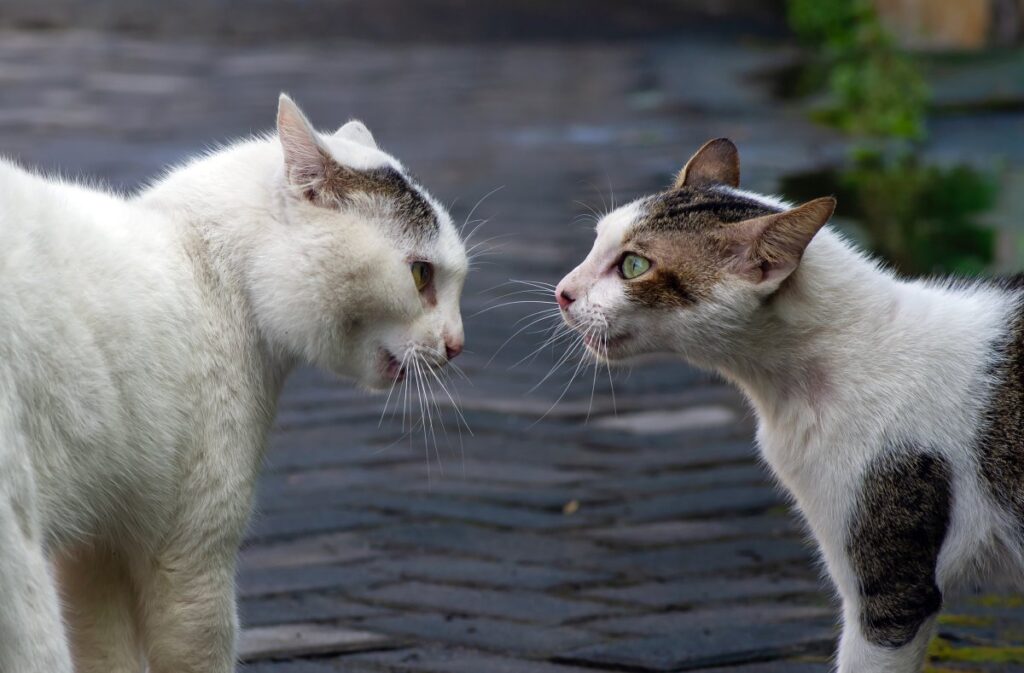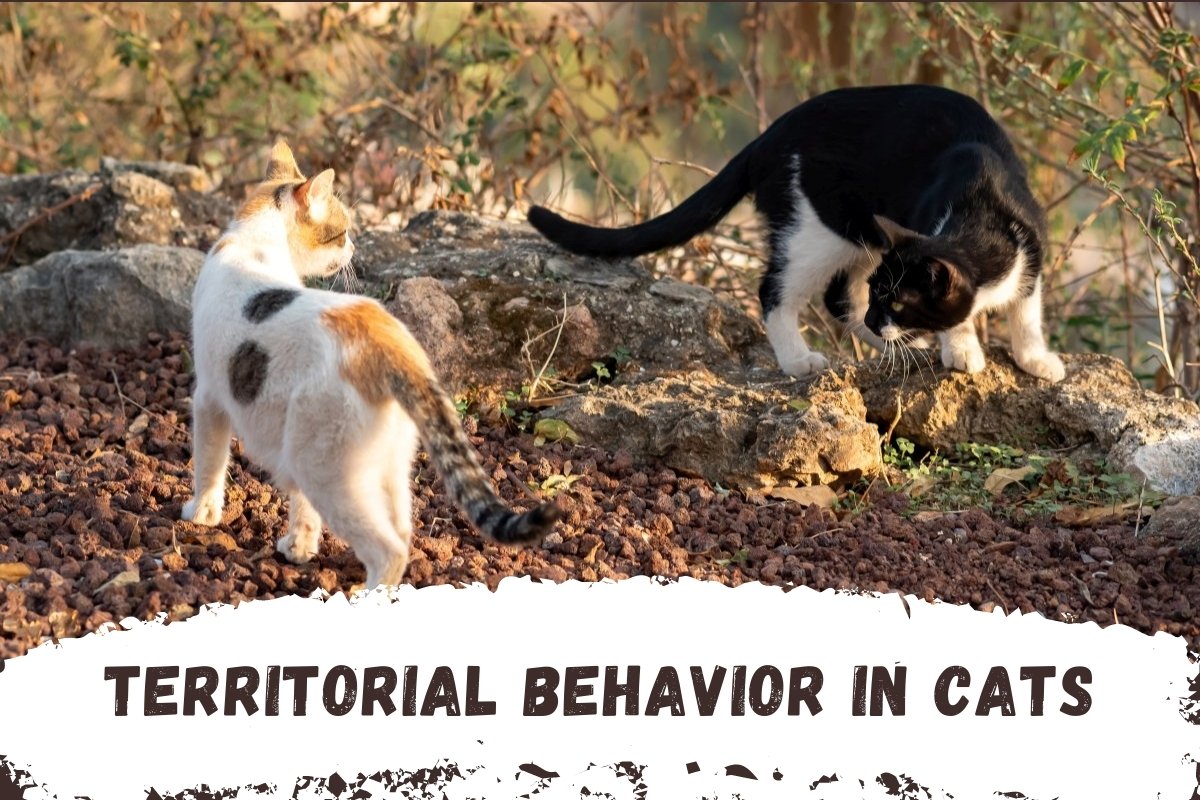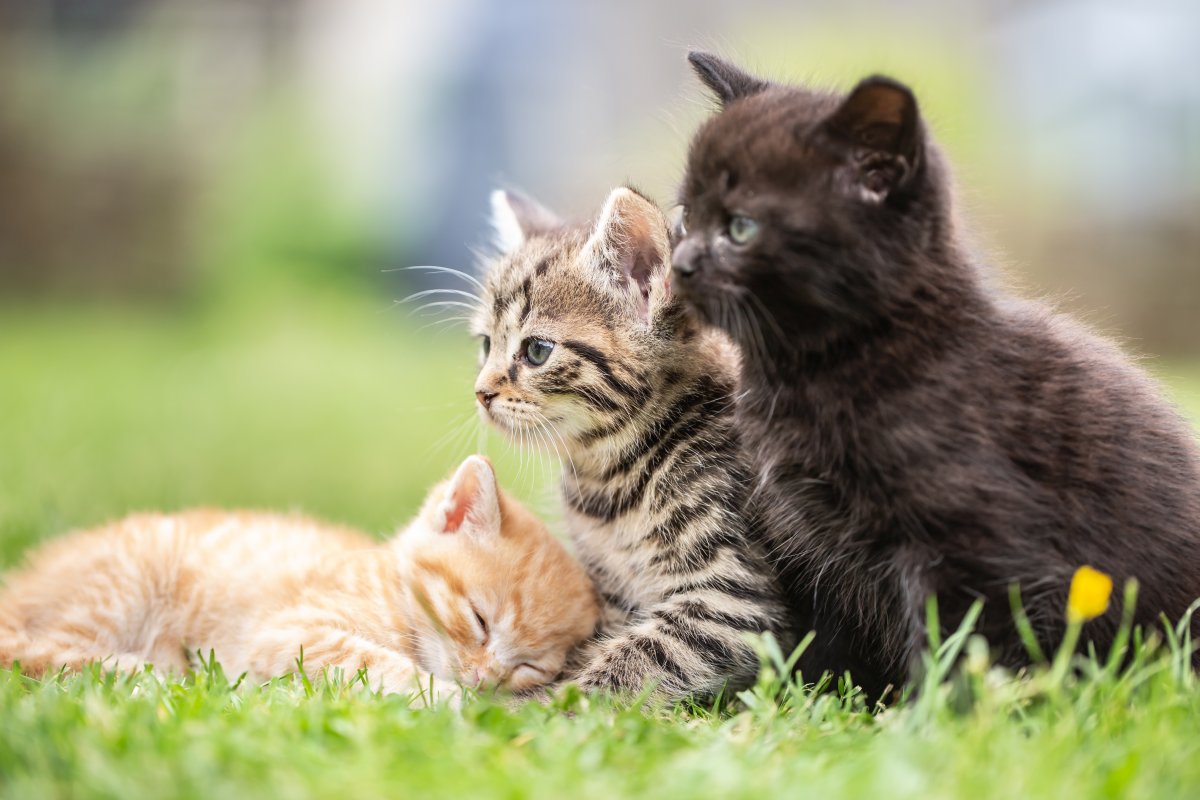Did you ever find your cat aggressive all of a sudden? Does she show you unusual behavior? You might have tried to understand your feline’s aggressive behavior, but at the same time, her aggression made you scared from doing so!
Aggression is the common feline behavior seen by animal behaviorists. Compared to dogs, cats are smaller, and their aggressive behavior is always taken less seriously – maybe because cats don’t chase people to bite them. Still, the aggressive behavior of cats is terrible. Cats have five potential weapons, including their teeth and clawed paws; they can inflict severe laceration by biting. Their sharp paws can also cause scratch fever, an infectious disease responsible for flu-like symptoms.
So, if you are wondering why your cat often gets aggressive, keep reading. We have answers to all your queries! In this article, you will learn about territorial behavior in cats and what to do if your cat has adopted aggressive behavior.
Why Is My Cat Territorial?
In the wild world, cats can only survive if they are good hunters or have a secure and safe territory in their homes. Usually, cats are cautious and conscious about intrusion into their area, especially at dawn and dusk. Even if your cat likes to spend her time indoors, she still has a strong instinct to establish territories. Your cat is fulfilling all her requirements of food at home, she doesn’t need to hunt, but still, due to her instinct, you will need to provide her with an environment that should meet all her needs, including territorial marking.
Signs of Territorial Behavior in Cats
Usually, the specific area where your cat likes to spend her time is called her territory. To let other felines know about their area, cats show natural marking behaviors such as scratching or rubbing.
She is more likely to deposit natural pheromones by rubbing her face and body to establish safe and secure boundaries for herself. You might have noticed your cat rubbing herself against you or a piece of furniture in your home, and she is scent-marking you and all the items as a part of her territory. Cats’ scratches leave both scent and visible marks to avoid conflict while sharing their space with other cats.

Your cat may also express another problematic marking behavior: spraying urine. This method is chosen by your cat when she is in her emotional state of mind and will determine a scent mark.
Contact your vet if your cat is marking her territory by spraying urine. Moreover, if your cat is creating problems in your home by her marking behaviors, seek a vet to discuss in length. They can suggest you make an agreeable solution. In addition, if your cat isn’t feeling safe at your home, she will show negative marking behaviors.
How Can I Prevent My Cat’s Territorial Aggression?
You can prevent or minimize territorial aggression with early socialization. Teach your cat patience, introduce her to new cats and provide her adequate resources such as food bowls, litter boxes, and enough space for hiding, climbing, and dispersing.
If you are introducing a new cat with an existing cat, then the best way to prevent those problems is to provide a separate room and things for the new one by supervising all interactions.
The perfect time to make your cat interact with another cat can be surprisingly variable. If each cat has been taught adequate socialization with other felines and is not too fearful, your cat is more likely to take only a few days or weeks to share her territory by showing no aggressive behavior.

How Can I Calm My Aggressive Cat?
Make Your Home a Safe Place
According to animal behaviorists, aggression in cats could also be a call for help. It may be possible that your cat is stressed and needs a place to relax. Even if your pet cats get along, they still require some alone time. You can provide your cat her space and time by giving her a cat condo or a separate room that is meant to be for your feline companion. In short, such an environment will help your agitated cat calm down.
Seek Help from a Veterinarian
If your cat is a gentle and polite pet but suddenly starts showing aggressive behavior, you immediately need to take her to the veterinarian. This can also be a sign of any underlying health problems. According to a veterinarian, a cat’s aggression can also be due to pain from arthritis or infection. Your cat can become gentle again if you detect her health issues early.
Keep Small Kids Away
According to animal experts, you should never permit your small children and babies to contact pets unaccompanied. Even though your cat is a loyal and gentle friend, a quick pull of the ear and a sudden skin pinch can result in severe scratches or bites. Cats are less likely to tolerate a child’s movement. Therefore, it is advisable to never let your kids near cats unnecessarily.

Don’t Shout
Shouting at cats is a common reaction for pet owners when they want to stop the fight or discipline their pets. Yelling at pets can work for dogs but not for cats. Cats do not receive a response to any negative thing, says animal experts. If you want to calm down your pet cat, the best way is to build your moments with her because bonding with your feline buddy strengthens your connection. This will let your cat know that you’re there for her to keep her safe and secure.
Nip Fights in the Bud
According to research, if you have more than one cat at home, be ready for the fight setup, especially if you haven’t neutered or spayed them. Keep a spray bottle, cardboard, or a blanket to keep the barrier between feuding cats. These are the effective ways to deal with the situation and cats’ aggression.
Wrapping Up
If you have an adult cat with a territorial issue, you need to take this behavior seriously because it can turn to aggression. If you fail to solve your cat’s issues, then seek advice from a professional behaviorist. They can help you to make things back on track so that you can live with your fine cat happily.








1 comment